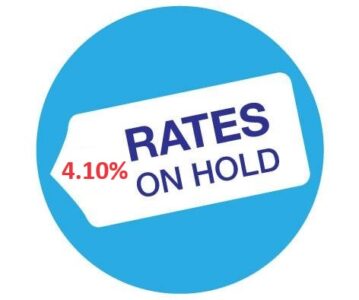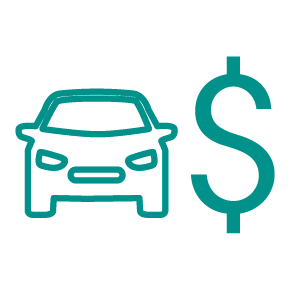
The RBA has held the official cash rate at 4.1 per cent for the fourth consecutive month in its October 2023 meeting.
The RBA has decided to hold the official cash rate at 4.1 per cent for the fourth consecutive month following its October monetary policy meeting with the board flagging some major uncertainties in the future of the economy.
Notably, the October board meeting has marked the first meeting with Ms Bullock presiding as the central bank’s governor.
On the decision, Ms Bullock said: “The recent data are consistent with inflation returning to the 2–3 per cent target range over the forecast period and with output and employment continuing to grow. Inflation is coming down, the labour market remains strong and the economy is operating at a high level of capacity utilisation, although growth has slowed”.
“The outlook for household consumption also remains uncertain, with many households experiencing a painful squeeze on their finances, while some are benefiting from rising housing prices, substantial savings buffers and higher interest income.
“Some further tightening of monetary policy may be required to ensure that inflation returns to target in a reasonable time frame, but that will continue to depend upon the data and the evolving assessment of risks.”
INTEREST RATES….UNDERSTANDING THE BASICS
So we know interest rates fluctuate, we know it means when rates are low we spend more and when rates go up as fast as they have in recent times it puts a lot of pressure on the average Australian household…..but how does it happen. With this in mind we wanted to share a basic understanding on what drives these changes….
A SNAPSHOT
The Reserve Bank of Australia (RBA) controls monetary policy by adjusting the official cash rate based on indicators including employment, inflation, economic growth, the consumer and the housing market.
High economic growth leads to high inflation, while slow or weak economic growth leads to unemployment, reduced incomes and lower living standards.
WHO CONTROLS INTEREST RATES?
Official interest rates are determined by the RBA. Their objective is to ensure that inflation growth remains low and stable and it uses what is called ‘monetary policy’ to do this. Monetary policy involves either lowering the cost of money to encourage spending which promotes economic growth or increasing the cost of money (interest rates) to slow down the economy (which is where we are now!).
THE OFFICIAL CASH RATE
One way the RBA manages growth of the economy is by making changes to the ‘official cash rate’ which is the interest rate it charges financial institutions. This cash rate feeds through to financial products which have variable interest rates, like savings accounts, cash management trusts, mortgages and personal loans. It also impacts cost of funding for the banks.
CONSUMER PRICE INDEX (CPI)
Inflation is monitored by the RBA through the Consumer Price Index (CPI) which measures price changes across a “basket” of goods and services that a typical consumer would buy. As we are experiencing now, A rise in inflation leads to a rise in interest rates. While low inflation results in the RBA lowering interest rates. The RBA targets inflation to be between 2% and 3% over the economic cycle.
As in our current situation, when inflation is towards the top end of this band (or above it and rising), the RBA lifts the official cash rate. As was in the case in the past few years, while inflation is at the low end of this band and growth and employment are weaker, the RBA would cut the official cash rate to encourage spending.
WHAT DRIVES INTEREST RATE CHANGES?
Economic outlook
Changes to the official cash rate are based on the outlook for economic growth and inflation. The Economic indicators such as Employment, investment spend, consumer and business confidence and the housing market are indicators the RBA use to determine the overall strength of the economy and how this will impact on inflation.
Global outlook
The Reserve Bank of Australia (RBA) takes into account significant international factors that can influence the performance of the Australian economy. This includes assessing the demand for and prices of Australia’s natural resources. When Australia’s trading partners experience robust growth and there’s strong demand for raw materials, it can stimulate economic expansion within Australia and exert upward pressure on interest rates. Conversely, a decline in commodity prices and demand for our natural resources may signal a potential slowdown in growth, potentially necessitating lower interest rates.
Moreover, the RBA considers the broader global economic landscape, recognising its critical impact on Australia. This impact is evident in consumer and business confidence, stock market performance, and overall economic activity. Several factors can affect the global outlook, including concerns about sovereign debt, fluctuations in global interest rates, and occurrences such as natural disasters.
HOW DO INTEREST RATE CHANGES AFFECT INVESTMENTS?
Changes in interest rates have distinct effects on various investment avenues. Rising interest rates generally favour individuals with savings. For those considering investments in term deposits or bonds, an uptick in interest rates typically translates to higher returns on investment. In a rising rate environment, term deposits often offer more attractive yields compared to periods of declining interest rates. This is precisely why investors often diversify their portfolios to include asset classes that are less susceptible to immediate interest rate fluctuations.
However, for investors holding fixed interest assets like government and corporate bonds, a rise in interest rates can result in the diminished value of these bonds. The reason behind this is that as interest rates climb, the capital value of bonds tends to decrease. Conversely, when interest rates decline, the capital value of these bonds may increase. But it’s important to note that any fresh investments made in bonds during a low-interest-rate period will yield lower returns in the future due to the prevailing lower interest rates.
Additionally, as Australian interest rates increase, the Australian dollar usually strengthens against other currencies. This occurs because overseas investors are drawn to the higher yields offered by Australian investments, leading to heightened demand for the Australian currency. Consequently, this stronger currency can reduce the returns for Australian investors in global stocks.
Conversely, when interest rates decline, the Australian dollar often weakens, making Australian commodities and exports more competitively priced for international buyers.
THE NOW – HOW DO INTEREST RATE CHANGES AFFECT YOU?
As for many of us, the uptick in interest rates has translated to higher obligations in the form of mortgage payments, loan instalments, and credit card balances. This heightened financial commitment is forcing many Australians to be tightening the purse strings and have a greater understanding how we spend our money.
The Interest rate hikes over the last 12 months has posed challenges for families and small enterprises alike, as the increased burden of mortgage and debt payments elevates the cost of living and business operations.
When conducting a financial review, it’s essential to monitor the trajectory of interest rates and, if required, incorporate a financial cushion to absorb potential future rate hikes that could impact your financial commitments. Additionally, exploring options such as debt consolidation and renegotiating current interest rates may be worthwhile steps to safeguard against impending increases.













